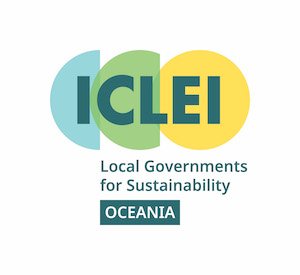IUCN unveils world’s first Global Standard for Nature-based Solutions
Nature-based Solutions (NbS) are fast becoming an important part of local government toolkits for climate and environmental action. Research shows that NbS could provide around 30% of the cost-effective mitigation needed by 2030 to stabilise warming to below 2 degrees, as well as increasing resilience to long-term climate change hazards.
On 23 July 2020, the International Union for Conservation of Nature (IUCN) unveiled a new Global Standard for Nature-based Solutions (NbS). The Global Standard is the first-ever set of benchmarks for NbS and will be applied in practice by local and regional governments through the international CitiesWithNature program.
What are Nature-based Solutions?
Nature-based Solutions are initiatives that simultaneously help protect, manage and restore the environment while delivering tangible and sustainable benefits for people. Nature-based Solutions can generate income for local communities and benefit municipalities that depend on these resources for health and well-being of residents. The term can also encompass Urban Greening or Biodiversity.
What is the Global Standard?
The Standard is effectively a simple yet robust hands-on self-assessment tool, which can be implemented using existing project management tools and technical approaches. The Standard’s first edition includes a Guidance document to assist users. To ensure credibility while implementing the Standard, the IUCN intends to establish a governance structure and a robust application process with learning feedback loops to improve the Standard. The Standard was developed by the IUCN with input from over 800 experts and practitioners from 100 countries.
Implications for cities
The Standard envisages that cities and local governments will be primary users. Municipalities deploying Nature-based Solutions should ensure projects meet the criteria set out in the Standard. ICLEI’s Cities Biodiversity Center (CBC) provides global leadership supporting cities with NbS, and through ICLEI Regional Offices will support cities globally via the CitiesWithNature program. Cities of all sizes can join the global movement supporting Nature-based Solutions through CitiesWithNature. Interested councils are encouraged to contact Steve Gawler, ICLEI Oceania Regional Director (steve.gawler@iclei.org).
Why do we need a Global Standard?
There has been global uptake of Nature-based Solutions across more than 130 countries which have already included NbS actions in their national climate plans under the Paris Agreement. However, not all actions labelled as “Nature-based Solutions” provide the anticipated benefits, and so the global potential of NbS is yet to be fully realised. The Global Standard also provides a common language for designing and verifying NbS for use by governments, planners, private companies, NGOs and individuals.
“Until now, there has been neither consensus nor coherent guidance on how to design and implement nature-based solution interventions that are capable of consistent delivery of benefits for people and nature,” said Angela Andrade, Chair of the IUCN Commission on Ecosystem Management, which helped lead the development of the Global Standard.
The Global Standard for Nature-based Solutions will ensure best use of NbS and avoid their potential misuse. Comprising eight criteria and associated indicators, the Standard includes a user guide and self-assessment tool to allow users to assess aptness, scale, economic, environmental and social viability of an intervention; consider possible trade-offs; ensure transparency and adaptive project management; and explore possible links to international targets.
The Global Standard will help local and regional governments ensure nature-based solutions are used to maximum effect to combat climate change, biodiversity loss and other societal challenges.
Sources: IUCN media release; Guidance document
Written by Timothy Shue

